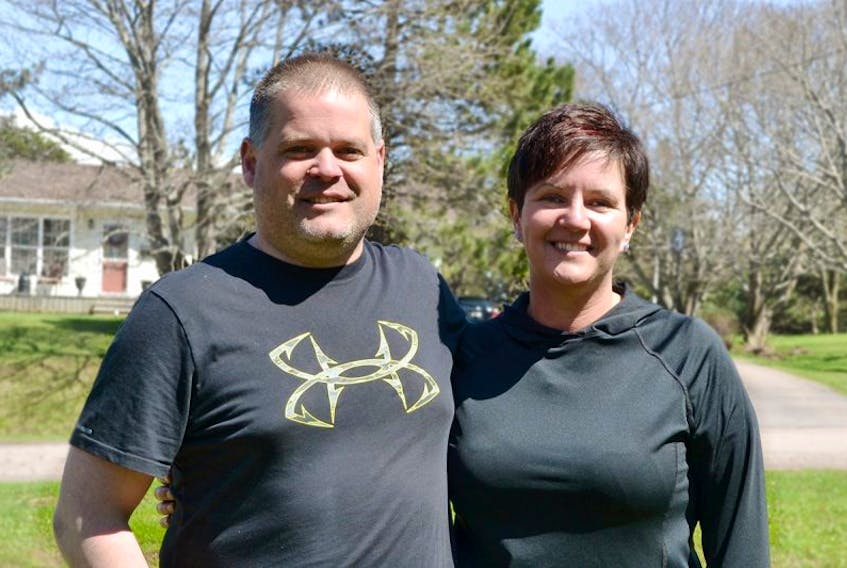Connor MacLean had been waiting earlier this month in the emergency department at the Queen Elizabeth Hospital, waiting for a bed in a psychiatric unit after attempting to commit suicide. But three days later, only one of which included speaking with a psychiatrist, he decided to leave.
He had, after all, been through this all before.
His parents are so desperate to get help for their son, they are going public with their family’s painful story.
–––––––
Are you in crisis?
Call the Island Helpline, 1-800-218-2885, if you need emotional support, crisis intervention or help with problem solving. Trained and caring staff members are available to answer your call any time of the day or night, seven days a week, 365 days a year. The Island Helpline is a free, 24/7, bilingual, confidential, non-judgmental and supportive telephone service.
–––––––
Connor has been in and out of hospital for the last two years seeking help with acute mental health issues.
“He was suicidal, tried to take his life, he’s not admitted yet, waiting for a bed and he’s supposed to be watched,” Robbie MacLean said.
“We walk in, ask the security officer, ‘Where’s Connor?’ ”
No one knew where he was.
A major search ensued, with police and even hospital staff searching the hospital grounds, including checking the riverbanks and wooded area that surrounds the Queen Elizabeth Hospital in Charlottetown.
“That’s not the job of hospital staff to go looking for patients in the woods, but they know that the system is so poor in there, they’re not adequately equipped to look out for people,” MacLean said.
They did eventually locate Connor, and he was back in the ER the next day, waiting again for treatment, but his parents are beside themselves with worry over their son.
He has made over 30 trips to the ER, has had two stays at Hillsborough Hospital, both of which lasted over 20 days. During each of those stays, he only spoke with a psychiatrist once.
“He makes these trips back and forth to the hospital, always gets frustrated and leaves, goes home because he feels like he’s not getting cared about,” Robbie said.
“Hillsborough doesn’t care about him. QEH didn’t care about him. So now he’s got the idea that it’s a waste of time to go to the hospital.”
The MacLeans are speaking out because they know they are not alone.
RELATED: 'We need the money:' Keizer slams P.E.I. government for diverting mental health funds
Dr. Heather Keizer, chief of mental health and addictions services for Health P.E.I., delivered a scathing public speech last week, where she said there has been such an increase in patients seeking mental health treatment, the system is in “crisis.”
“This month has revealed that the burden of psychiatry and mental health patients in PCH (Prince County Hospital) and QEH (Queen Elizabeth Hospital) are at persistently escalating numbers and are not coming down – looking epidemic,” Keizer said in her speech.
Mona O’Shea, president of the P.E.I. Nurses Union, says she has heard concerns from emergency room nurses about an ongoing backlog of mental health patients spending up to a week in the ER.
“Sometimes people can be there up to five or seven days and actually be discharged from the department after that without having seen any resources or been involved in any programs because they didn’t actually get admitted to where they should have gone,” O’Shea said.
She says nurses feel bad for these patients because the ER is not a place where they can give these patients the time and attention they need.
“They deal with emergencies, they’re on their toes with quick action, they all have training in communication… however it’s not the kind of communication that somebody that’s in a mental health crisis needs from this nurse. Because as soon as the ER nurse gets into a conversation with them, all of a sudden someone is knocking on the door saying, ‘Hey, we just had a trauma come in, we need you,’ ” O’Shea explained.
“It’s a disruptive communication.”
O’Shea says a nurse told her when she began her shift in the ER one day last week, there were 25 patients in the emergency department waiting to be admitted. Eight of them were mental health patients.
Community mental health nurses have also been expressing concern to the union about heavy workloads.
“They feel bad, they feel they’re not providing the care these individuals need and in a timely fashion.”
O’Shea says one reason for the strain on the system is a provincewide shortage of nurses, with vacancies in numerous departments.
Both O’Shea and other families who spoke with The Guardian for this story said there is also a gap in services for those who have been discharged from hospital.
“If somebody is in crisis being discharged from the hospital, they shouldn’t have to wait two or three weeks to see a community mental health nurse,” O’Shea said.
The union also has concerns about security of staff and other patients, as some mental health patients spending extended time in the ER can be violent to themselves and/or others.
There are two “safe and secure” rooms in the ER at the QEH and security officers on duty 24/7, but it is not a locked or secured unit, so patients can leave at any time.
Health Minister Robert Henderson acknowledged his department has seen an increase in the number of patients needing mental health treatment, but he says government is doing its best to meet the rising needs.
He also acknowledged there are shortages in psychiatrists, but he stressed recruitment is being actively pursued.
Health P.E.I. recently hired a new full-time psychiatrist who will move to P.E.I. this July, and the department is “exploring emerging best practices in medicine to improve access to mental health care, including tele-psychiatry.”
Additionally, Henderson says the province is looking at the possibility of establishing a mobile mental health crisis unit – P.E.I. is the only province in Atlantic Canada without one.
Work is also currently underway to plan for a new Hillsborough Hospital complex. A total of $16.9 million in capital expenditure has been earmarked for the next five years for this complex, beginning with $200,000 this year for master planning.
In the meantime, Henderson says government is doing its best to meet the complex needs of these patients.
He stressed patients who are discharged from hospital are usually given a “continuum of care plan” and rhymed off a list of enhancements government has made to existing programs available for Islanders seeking mental health and addictions treatment.
“It’s just a tough challenge to meet everybody’s expectations on something so complex as mental health and addictions issues tend to be,” he said.
“Yes, we do have vacancies when it comes to psychiatry and some other positions, so there are times we aren’t able to provide the follow-up services as consistently and as frequently as we’d like, but there is usually always a continuum of care plan put in place anytime the patient leaves (hospital).”
Families say they just aren’t seeing this on the ground. Some openly admit to calling their MLAs asking for political intervention to help them secure mental health treatment.
In February, Alisha Wolf rushed her 16-year-old son to the ER after he went into drug-induced psychosis. He waited 13 days in the emergency department before being admitted to Unit 9.
He was much improved upon discharge, but then there was “nothing after the hospital,” she said. Two weeks later, he relapsed.
“I’m in limbo waiting to hear if my child has overdosed and I need to bury him,” Wolf said.
“What the system needs is something after the hospital. If something doesn’t happen, I will bury my son or he will end up in jail. Those are the only two options for me right now.”
The MacLeans are feeling similarly hopeless.
They believe the only way their son, Connor, will get the treatment he really needs is by leaving the province. But they can’t get a referral to an out-of-province facility.
“Mental health is the new cancer. And what did they do when cancer was an epidemic here? They build a state-of-the-art cancer centre,” Robbie MacLean said.
“We need to have something done as a resource to help mental health patients. Everybody is getting lost and falling through the cracks. How many people have to die?”









